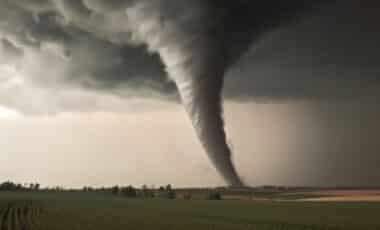As extreme heat waves sweep across parts of the United States, the National Weather Service (NWS) has issued urgent heat advisories, advising residents in several states to avoid drinking caffeine and alcohol, which can increase the risk of dehydration. The scorching conditions, with temperatures reaching dangerous levels, have triggered warnings for millions of Americans, particularly those in vulnerable groups such as the elderly and young children.
In some of the hardest-hit areas, including northwest and southeast California, southern Nevada, and parts of Arizona, Utah, and Oregon, temperatures are expected to soar into the triple digits, with some areas like Death Valley anticipating highs between 120°F and 125°F. As temperatures climb, the NWS is urging residents to stay hydrated with water or electrolyte-filled sports drinks instead of beverages like coffee, which can exacerbate dehydration.
Heat-Related Illnesses and Their Impact
According to the Centers for Disease Control and Prevention (CDC), extreme heat poses serious health risks, particularly for those with chronic medical conditions. Heat-related illnesses, including muscle cramps, dizziness, and nausea, can quickly become life-threatening, especially when high temperatures persist over multiple days. The CDC reports that over 700 deaths occur each year in the U.S. due to extreme heat, making it one of the deadliest weather-related phenomena in the country.
High temperatures also worsen ground-level ozone pollution, which can lead to respiratory issues for people with asthma or other lung conditions. As the heat intensifies, the NWS has warned that the air quality in some regions could further deteriorate, compounding the health risks.
States Facing the Highest Temperatures
In addition to California and Nevada, other states are experiencing severe heat advisories. Areas such as Arizona’s Grand Canyon and Las Vegas, Nevada, are bracing for daytime highs in the 110°F to 115°F range, with heat index values potentially reaching triple digits. These conditions are expected to create intense heat stress for residents and travelers, who may find it difficult to escape the oppressive Heat wave, especially in urban areas with limited green space.
Meanwhile, less severe heat advisories have been issued for parts of Florida, Georgia, Louisiana, and Mississippi, where temperatures are still expected to hit the high 90s. Despite the slightly lower temperatures, the humidity in these regions is likely to make it feel much hotter, adding to the discomfort and risk of heat-related illnesses.

Some states had a combination of alerts in effect.
What to Do During Extreme Heat
The NWS and CDC recommend several precautions to stay safe during extreme Heat wave. In addition to drinking plenty of water and sports drinks, individuals are advised to wear light-colored, loose-fitting clothing and use sunscreen to protect against harmful UV rays. People should also seek shelter in air-conditioned spaces whenever possible, avoid strenuous outdoor activities during peak heat, and take frequent breaks in cool areas.
The NWS also stresses the importance of being vigilant for signs of heat exhaustion, which can escalate into heatstroke if left untreated. Early symptoms of heat exhaustion include heavy sweating, weakness, dizziness, and nausea. If these symptoms appear, it’s crucial to seek immediate relief in a cool environment and hydrate with water or sports drinks.
As the heat wave continues, the NWS will issue regular updates on temperature forecasts and health advisories. Extreme Heat wave, which indicate “dangerously hot conditions,” remain in effect until at least Wednesday evening, with more updates expected as the weather evolves. Residents in affected areas are urged to stay informed and take the necessary precautions to protect themselves from the harmful effects of heat.









